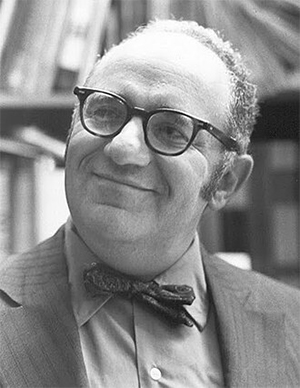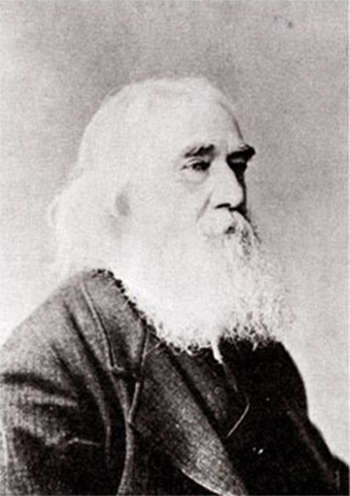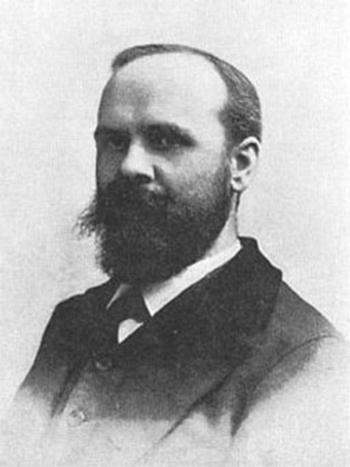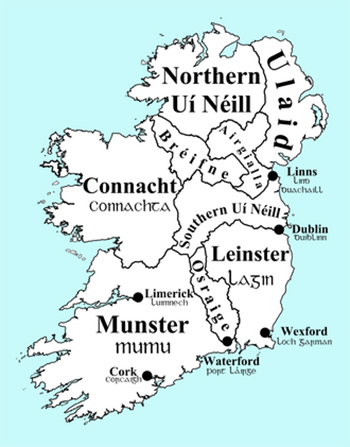14 States Sue to Block Elon Musk’s DOGE Actions, Claim Unconstitutional Abuse of Power
by Courtney Cohn
Democracy Docket
February 14, 2025
https://www.democracydocket.com/news-al ... -of-power/
An internal email sent to BFS IT personnel by the BFS threat intelligence team has identified DOGE access as “the single greatest insider threat risk the Bureau of the Fiscal Service has ever faced.” The intelligence team recommended the DOGE members be monitored as an insider threat. Critically, they called for “suspending” any access to payment systems and “conducting a comprehensive review of all actions they may have taken on these systems.”
-- State of Mexico, et al., plaintiffs, v. Elon Musk, U.S. Doge Service, U.S. Doge Service Temporary Organization and Donald J. Trump, Defendants.
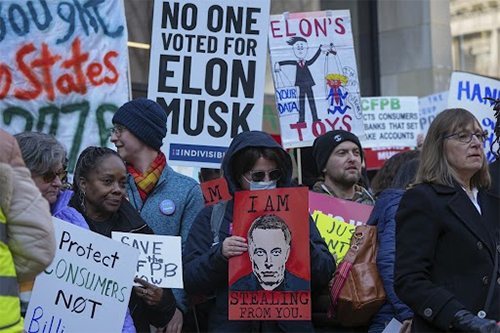
Protesters gather at the Consumer Financial Protection Bureau headquarters to protest against Elon Musk and President Donald Trump’s efforts to close the bureau. (Andrew Leyden/NurPhoto via AP)
Over a dozen states filed a lawsuit Thursday to nullify the unconstitutional actions of Elon Musk’s Department of Government Efficiency (DOGE) and prevent them from performing any future actions like freezing federal funding, accessing agency data and taking over agencies.
“Although our constitutional system was designed to prevent the abuses of an 18th century monarch, the instruments of unchecked power are no less dangerous in the hands of a 21st century tech baron,” the plaintiffs said in the lawsuit.
The plaintiffs argued that Musk, DOGE and President Donald Trump violated the Appointments Clause and the separation of powers principles of the U.S. Constitution.
Musk has wielded the power of an official who would need to be formally appointed by the president and confirmed by the Senate, but he hasn’t gone through that constitutionally required process, the states argued.
They detailed how he and his department employees “roamed through the federal government,” accessing sensitive information, controlling agency activities and eliminating programs in a variety of entities, including the Education, Labor, and Treasury departments, the U.S. Agency for International Development (USAID) and the Consumer Financial Protection Bureau.
“Musk’s seemingly limitless and unchecked power to strip the government of its workforce and eliminate entire departments with the stroke of a pen, or click of a mouse, is unprecedented,” the plaintiffs said. “The sweeping authority now vested in a single unelected and unconfirmed individual is antithetical to the nation’s entire constitutional structure.”
New Mexico Attorney General Raúl Torrez (D) spearheaded the lawsuit, filing it with his counterparts in Arizona, California, Connecticut, Hawaii, Maryland, Massachusetts, Minnesota, Michigan, Nevada, Oregon, Rhode Island, Vermont and Washington.
“Empowering an unelected billionaire to access Americans’ private data, slash funding for federal student aid, stop payments to American farmers and dismantle protections for working families is not a sign of President Trump’s strength, but his weakness,” Torrez said in a statement.
The plaintiffs specifically implicated Trump in the lawsuit for creating DOGE through an executive order, delegating “virtually unchecked authority” to Musk “without proper legal authorization from Congress.”
The plaintiffs explained that DOGE’s actions have harmed them because a lot of the federal funding that the department has interfered with is allocated to their states.
“The federal government disburses billions of dollars directly to the States, to support law enforcement, health care, education, and many other programs,” the plaintiffs said.
They asked a federal district court in Washington, D.C. to “restore constitutional order” by voiding Musk’s “officer-level governmental actions to date, including those of his subordinates and designees,” and declare that any future orders or directions Musk or DOGE make will have no legal effect.
The plaintiffs asked the judge to block DOGE from taking further actions until the court can hold a hearing on an injunction to stop the conduct while litigation is ongoing.
This follows a similar lawsuit filed by USAID employees Thursday, also alleging that Musk, DOGE and Trump violated the Appointments Clause and separation of powers principles.
A couple of judges already delivered losses to DOGE. Earlier this week, a New York judge blocked DOGE’s access to the Treasury Department’s payment systems. Also, a federal judge in Washington, D.C. extended a temporary restraining order Thursday blocking DOGE and the Trump administration from putting 2,220 USAID workers on paid leave.
************************
IN THE UNITED STATES DISTRICT COURT
FOR THE DISTRICT OF COLUMBIA
STATE OF NEW MEXICO,
408 Galisteo St.
Santa Fe, NM 87501;
STATE OF ARIZONA,
2005 N. Central Ave.
Phoenix, AZ 85004;
THE PEOPLE OF THE STATE OF MICHIGAN,
525 Ottawa St.
Lansing, MI 48933;
STATE OF CALIFORNIA,
1300 I St.
Sacramento, CA 95814;
STATE OF CONNECTICUT,
165 Capitol Ave. Hartford, CT 06106;
STATE OF HAWAI’I,
425 Queen St
Honolulu, HI 96813;
STATE OF MARYLAND,
200 St. Paul Place, 20th Fl.
Baltimore, MD 21202;
STATE OF MASSACHUSETTS,
1 Ashburton Pl
Boston, MA 02108
STATE OF MINNESOTA,
445 Minnesota St., Ste. 600
St. Paul, MN 55101;
STATE OF NEVADA
1 State of Nevada Way, Ste. 100
Las Vegas, NV 89119
STATE OF OREGON,
100 SW Market St
Portland, OR 97210
STATE OF RHODE ISLAND,
150 South Main St
Providence, RI 02903;
STATE OF VERMONT,
109 State St.
Montpelier, VT 05609;
STATE OF WASHINGTON,
800 Fifth Ave., Ste. 2000
Seattle, WA 98104;
Plaintiffs,
v.
ELON MUSK, in his official capacity, c/o Executive Office of the President
1600 Pennsylvania Avenue, NW
Washington, DC 20530
U.S. DOGE SERVICE
1600 Pennsylvania Avenue, NW
Washington, DC 20530
U.S. DOGE SERVICE TEMPORARY ORGANIZATION, c/o Executive Office of the President
1600 Pennsylvania Avenue, NW
Washington, DC 20530
DONALD J. TRUMP, in his official capacity as PRESIDENT OF THE UNITED STATES,
1600 Pennsylvania Avenue, NW
Washington, DC 20530
Defendants.
Case No. 1:25-cv-00429
COMPLAINT FOR DECLARATORY AND INJUNCTIVE RELIEF
INTRODUCTION
1. There is no greater threat to democracy than the accumulation of state power in the hands of a single, unelected individual. Although our constitutional system was designed to prevent the abuses of an 18th century monarch, the instruments of unchecked power are no less dangerous in the hands of a 21st century tech baron. In recent weeks, Defendant Elon Musk, with President Donald J. Trump’s approval, has roamed through the federal government unraveling agencies, accessing sensitive data, and causing mass chaos and confusion for state and local governments, federal employees, and the American people.
2. Oblivious to the threat this poses to the nation, President Trump has delegated virtually unchecked authority to Mr. Musk without proper legal authorization from Congress and without meaningful supervision of his activities. As a result, he has transformed a minor position that was formerly responsible for managing government websites into a designated agent of chaos without limitation and in violation of the separation of powers.
3. The Founders of this country fought for independence from the British monarchy due in no small part to the King’s despotic power to create an unlimited number of governmental offices and to fill those offices with the King’s supporters. In fact, this practice so severely undermined the Founders’ freedoms that it is a listed grievance in the Declaration of Independence.
He has erected a multitude of New Offices, and sent hither swarms of Officers to harrass our people, and eat out their substance....
For taking away our Charters, abolishing our most valuable Laws, and altering fundamentally the Forms of our Governments:
For suspending our own Legislatures, and declaring themselves invested with power to legislate for us in all cases whatsoever....
In every stage of these Oppressions We have Petitioned for Redress in the most humble terms: Our repeated Petitions have been answered only by repeated injury. A Prince whose character is thus marked by every act which may define a Tyrant, is unfit to be the ruler of a free people.
-- Declaration of Independence: The unanimous Declaration of the thirteen united States of America, In Congress, July 4, 1776
4. Informed by that history, the Framers of the Constitution crafted the Appointments Clause to protect against such tyranny in our system of government. The Appointments Clause was designed to buttress the separation of powers in two ways: first by requiring that Congress create an office before the President can fill it, and second by requiring that the Senate confirm a nominee to an office created by law. These limitations on the President’s power make executive appointments accountable to Congress and make the Senate’s confirmation decisions accountable to the people. See United States v. Arthrex, 594 U.S. 1, 12 (2021). In this way, the Appointments Clause serves a vital role in curbing Executive abuses of power.
5. Mr. Musk’s seemingly limitless and unchecked power to strip the government of its workforce and eliminate entire departments with the stroke of a pen or click of a mouse would have been shocking to those who won this country’s independence. There is no office of the United States, other than the President, with the full power of the Executive Branch, and the sweeping authority now vested in a single unelected and unconfirmed individual is antithetical to the nation’s entire constitutional structure.
6. Mr. Musk does not occupy an office of the United States and has not had his nomination for an office confirmed by the Senate. His officer-level actions are thus unconstitutional. This Court should restore constitutional order and, consistent with the Appointments Clause, enjoin Mr. Musk from issuing orders to any person in the Executive Branch outside of DOGE and otherwise engaging in the actions of an officer of the United States, and declare that his actions to date are ultra vires and of no legal effect.
JURISDICTION AND VENUE
7. The Court has jurisdiction under 28 U.S.C. §§ 1331 and 2201(a).
8. The Court may grant declaratory, injunctive and other relief pursuant to 28 U.S.C. §§ 2201–02.
9. An actual controversy exists between the parties within the meaning of 28 U.S.C. § 2201(a).
10. Venue is proper in the District of Columbia under 28 U.S.C. §§ 1391(b)(2) and (e)(1). Defendants are organizations of the United States, the President of the United States, and an individual employed by the United States sued in his official capacity, and a substantial part of the events or omissions giving rise to the claims in this Complaint occurred and continue to occur within this District.
PARTIES
A. Plaintiffs
11. Plaintiff the State of New Mexico is a sovereign state of the United States. New Mexico is represented by Attorney General Raúl Torrez. The Attorney General is New Mexico’s chief law enforcement officer and is authorized to pursue this action pursuant to N.M. Stat. Ann. § 8-5-2(B).
12. Plaintiff the State of Arizona is a sovereign state of the United States. Arizona is represented by Attorney General Kris Mayes. The Attorney General is Arizona’s chief law enforcement officer and is authorized to pursue this action pursuant to Arizona Revised Statutes § 41-193(A)(3).
13. Plaintiff the People of the State of Michigan is represented by Attorney General Dana Nessel. The Attorney General is Michigan’s chief law enforcement officer and is authorized to bring this action on behalf of the People of the State of Michigan pursuant to Mich. Comp. Laws § 14.28.
14. Plaintiff the State of California is a sovereign state of the United States. California is represented by Attorney General Rob Bonta. The Attorney General is California’s chief law enforcement officer and is authorized to pursue this action pursuant to section 13 of article V of the California Constitution.
15. Plaintiff the State of Connecticut is a sovereign state of the United States. Connecticut is represented by Attorney General William Tong, who is the chief law enforcement officer of Connecticut.
16. Plaintiff the State of Hawai’i is a sovereign state of the United States. Hawai’i is represented by and through Attorney General Anne E. Lopez, who is the chief law enforcement officer of Hawai’i.
17. Plaintiff the State of Maryland is a sovereign state of the United States. Maryland is represented by and through Attorney General Anthony G. Brown, who is the chief law enforcement officer of Maryland.
18. Plaintiff State of Massachusetts is a sovereign state of the United States. Maryland is represented by and through Attorney General Andrea Joy Campbell, who is the chief law enforcement officer of Maryland.
19. Plaintiff the State of Minnesota is a sovereign state of the United States. Minnesota is represented by Attorney General by Attorney General Keith Ellison who is the chief law enforcement officer of Minnesota.
20. Plaintiff the State of Nevada is a sovereign state of the United States. Nevada is represented by Attorney General Aaron Ford who is the chief law enforcement officer of Nevada.
21. Plaintiff the State of Oregon is a sovereign state of the United States. Oregon is represented by Attorney General Dan Rayfield, who is the chief law enforcement officer of Oregon.
22. Plaintiff the State of Rhode Island is a sovereign state of the United States. Rhode Island is represented by Attorney General Peter F. Neronha who is the chief law enforcement officer of Rhode Island.
23. Plaintiff the State of Vermont is a sovereign state of the United States. Vermont is represented by Attorney General Chastity Clark who is the chief law enforcement officer of Vermont.
24. The State of Washington is a sovereign state in the United States. Washington is represented by Attorney General Nicholas W. Brown. The Attorney General of Washington is the chief legal adviser to the State and is authorized to act in federal court on behalf of the State on matters of public concern.
B. Defendants
25. Defendant Elon Musk is sued in his official capacity as a “special Government employee” of the Executive. 18 U.S.C. § 202(a).
26. Defendant the United States Department of Government Efficiency Service was established by Executive Order on January 20, 2025, and is a group organized within the Executive Office of the President.
27. Defendant the United States Department of Government Efficiency Service Temporary Organization was established by Executive Order on January 20, 2025.
28. Defendant Donald J. Trump is sued in his official capacity as the President of the United States.
LEGAL FRAMEWORK
29. The Constitution creates a deliberate and ordered process for the exercise of significant authority over the Nation’s laws, its purse, and its people. While the President has the authority to recommend to Congress “such measures as he shall judge necessary and expedient,” U.S. Const. art. II, § 3, it is Congress that ultimately wields the power to enact a law authorizing the exercise of significant authority and disbursing any necessary funding.
30. The separation of powers is one of the core, fundamental principles that undergirds our constitutional structure. It is Congress, not the President, that possesses the power to enact laws and appropriate funds. Among the President’s responsibilities include his obligation to “take care that the laws” Congress enacts are “faithfully executed.” U.S. Const. art. II, § 3.
31. Likewise, the Constitution prevents the President from making unilateral changes to existing laws concerning the structure of the Executive Branch and federal spending. For example, the President cannot establish—or “delete”—federal agencies. Nor may the President unilaterally shut off federal funding where Congress has already appropriated the money.
32. In these and a host of other ways, the Constitution reflects the Framers’ clear intent to provide checks and balances among the coordinate branches of government.
A. The Appointments Clause
33. The Appointments Clause is a pillar of this basic constitutional structure and serves as a vital bulwark against “the danger of one branch’s aggrandizing its power at the expense of another branch.” Freytag v. C.I.R., 501 U.S. 868, 880 (1991).
34. The Appointments Clause provides that the President:
shall nominate, and by and with the Advice and Consent of the Senate, shall appoint Ambassadors, other public Ministers and Consuls, Judges of the supreme Court, and all other Officers of the United States, whose Appointments are not herein otherwise provided for, and which shall be established by Law: but the Congress may by Law vest the Appointment of such inferior Officers, as they think proper, in the President alone, in the Courts of Law, or in the Heads of Departments.
U.S. Const. art. II, § 2, cl. 2.
35. The Appointments Clause is among the Constitution’s most “significant structural safeguards of the constitutional scheme,” Edmond v. United States, 520 U.S. 651, 659 (1997), because it prevents one branch from “aggrandizing its power” or “dispensing it too freely . . . to inappropriate members of the Executive Branch.” Freytag, 501 U.S. at 878, 80. The Supreme Court has explained that “[ i]f there is any point in which the separation of the legislative and executive powers ought to be maintained with great caution, it is that which relates to officers and offices.” Myers v. United States, 272 U.S. 52, 116 (1926) (quoting 1 ANNALS OF CONG. 581 (1789)).
36. The Appointments Clause also serves the twin purposes of transparency and accountability. “‘Assigning the nomination power to the President guarantees accountability for the appointees’ actions because the ‘blame of a bad nomination would fall upon the president singly and absolutely.’” Arthrex, 594 U.S. at 12 (quoting The Federalist No. 77, p. 517 (J. Cooke ed. 1961) (A. Hamilton)). Likewise, “[t]he Appointments Clause adds a degree of accountability in the Senate, which shares in the public blame ‘for both the making of a bad appointment and the rejection of a good one.’” Id. (citation omitted). The Clause allows the public to scrutinize individuals who exercise significant authority through a public vetting process under an oath of office pursuant to 5 U.S.C. § 3331.
37. Precedent interpreting the Appointments Clause distinguishes between two types of “officers”: “inferior” officers and what have become known as “principal” or “noninferior” officers. See Arthrex, 594 U.S. at 12. In essence, there are three types of Executive Branch personnel (other than the President and Vice President): (1) principal officers, (2) inferior officers, and (3) employees. See generally id.
38. Principal officers must always be nominated by the President and confirmed by the Senate. Id.
39. Inferior officers must be nominated by the President and confirmed by the Senate unless Congress creates an exception and “by Law vest[s] the Appointment of such inferior Officers, as they think proper, in the President alone, in the Courts of Law, or in the Heads of Departments.” U.S. Const. art. II, § 2, cl. 2. In other words, when there is no law addressing the appointment of an inferior officer, the principal-officer procedure applies; only the President can nominate the officer, and appointment requires the advice and consent of the Senate.
40. The hiring of employees—who are distinct from “Officers of the United States”—is not governed by the Appointments Clause because they are categorized as “lesser functionaries subordinate to officers of the United States.” Buckley v. Valeo, 424 U.S. 1, 126 n.162 (1976) (per curiam).
41. The difference between an officer and an employee is that an officer exercises “significant authority” on behalf of the United States on a continuing basis. Lucia v. Sec. & Exch. Comm’n, 585 U.S. 237, 245 (2018) (quoting Buckley, 424 U.S. at 6).
42. Continuing offices are distinguished from those that are personal, contractual, or limited to a single task. Edmond v. United States, 520 U.S. 651, 661 (1997).
43. There is not “an exclusive criterion for distinguishing between principal and inferior officers for Appointments Clause purposes,” but the central rule is that “‘inferior officers’ are officers whose work is directed and supervised at some level by others who were appointed by Presidential nomination with the advice and consent of the Senate.” Edmond, 520 U.S. at 661, 663.
44. Importantly, the Appointments Clause only grants the President the power to nominate officers to offices that Congress has already “established by Law.” U.S. Const. art. II, § 2, cl. 2. “If Congress has not reached a consensus that a particular office should exist, the Executive lacks the power to unilaterally create and then fill that office.” Trump v. United States, 603 U.S. 593, 650 (2024) (Thomas, J., concurring). “By keeping the ability to create offices out of the President’s hands, the Founders ensured that no President could unilaterally create an army of officer positions to then fill with his supporters. Instead, our Constitution leaves it in the hands of the people’s elected representatives to determine whether new executive offices should exist.” Id. at 646 (Thomas, J., concurring).
45. The “significant authority” that distinguishes officers subject to the Appointments Clause from employees not subject to the Clause includes, among other things, the binding execution or interpretation of the laws. This applies to many types of executive decisions, such as the authority to receive, oversee, or disburse public funds, authority over contracts, the power to determine the use of and access to government property, and the power to issue regulations.1
B. Temporary Organization Statute
46. “Administrative agencies are creatures of statute. They accordingly possess only the authority that Congress has provided.” Nat’l Fed’n of Indep. Bus. v. Dep’t of Lab., Occupational Safety & Health Admin., 595 U.S. 109, 117 (2022) (per curiam).
47. Congress has provided that the President may establish a “temporary organization” for a “specific period not in excess of three years for the purpose of performing a specific study or other project.” 5 U.S.C. § 3161. By its plain terms, this limited authorization does not amount to a carte blanche grant of authority to the Executive to create new federal agencies from whole cloth.
48. Although the Executive Order that created the United States DOGE Service Temporary Organization purports to invoke this statute, 5 U.S.C. § 3161 does not provide DOGE with the authority it has purported to exercise.
49. The “major questions” doctrine further constrains administrative power by requiring “Congress to speak clearly when authorizing an agency to exercise powers of vast economic and political significance.” Nat’l Fed’n of Indep. Bus., 595 U.S. at 117 (citation and quotation marks omitted). When the executive branch purports to exercise such powers, “the question” is whether a statute (or the Constitution) “plainly authorizes” that action. Id.
FACTUAL BACKGROUND
50. On November 12, 2024, then President-elect Trump announced on X (formerly known as Twitter) that he planned to establish a “Department of Government Efficiency,” describing it as a “Manhattan Project” for the federal government that would “pave the way” to “dismantle Government Bureaucracy, slash excess regulations, cut wasteful expenditures, and restructure Federal Agencies.”2
51. President Trump’s earliest indication that Mr. Musk would lead such an effort appeared was during a YouTube conversation between the two on August 12, 2024, in which President Trump enthusiastically responded to Mr. Musk offering to take a leadership role on a government efficiency commission, noting that Mr. Musk was “the greatest cutter.”
52. On the day of his inauguration, President Trump issued an Executive Order (“DOGE Executive Order”) creating the United States Department of Government Efficiency Service (“DOGE Service”).
53. While President Trump purported to simply be renaming the pre-existing entity United States Digital Service, he gave the DOGE Service a different mission and structure.3
54. Through the DOGE Executive Order, President Trump created a DOGE Administrator position to lead another new entity, the U.S. DOGE Service Temporary Organization (“DOGE Temporary Organization”). The DOGE Administrator was directed to implement a “Software Modernization Initiative” “to improve the efficiency of federal software and information technology systems and promote interoperability among agency networks and systems.”4
55. The DOGE Executive Order also created DOGE Teams that are intended to be embedded in every federal agency and will typically consist of a Team Lead, one engineer, one human resources specialist, and one attorney. The DOGE Teams were to be created through consultation between the relevant agency head and the DOGE Administrator.5
56. President Trump tasked the DOGE Temporary Organization with advancing the “President’s DOGE agenda, by modernizing Federal technology and software to maximize governmental efficiency and productivity” before its termination date, July 4, 2026.6
57. In the DOGE Executive Order, President Trump further directed federal agency heads to “take all necessary steps, in coordination with the [DOGE] Administrator and to the maximum extent consistent with law, to ensure [DOGE] has full and prompt access to all unclassified agency records, software systems, and IT systems.”7
58. On its face, the Executive Order exempts the DOGE Service, DOGE Administrator, and DOGE Teams from the July 4, 2026, sunset provision.8
59. The statements and actions of President Trump, other White House officials, and Mr. Musk himself indicate that Mr. Musk has been directing the work of DOGE personnel9 since at least January 21, 2025.
60. On February 3, 2025, White House Press Secretary Karoline Leavitt confirmed that, as President Trump had planned, Mr. Musk had taken charge of DOGE: “As you know, President Trump tasked Mr. Musk with starting up DOGE, and he already has done that in the first week, they’ve been incredibly productive and efficient already, saving taxpayers tens of billions of dollars, so we welcome Mr. Musk’s support in this effort.”
61. During this initial period, DOGE secured access to sensitive material in dozens of federal agencies, including the Department of the Treasury,10 the Office of Personnel Management, 11 the Centers for Medicare and Medicaid Services,12 the Department of Labor,13 the Department of Education,14 the Department of Energy (which oversees nuclear weapons), the Department of Defense, and the Centers for Disease Control.
62. After this conduct became public, White House Press Secretary Leavitt revealed that Mr. Musk was a “special government employee,” though she could not confirm whether he had received any security clearance and did not disclose the date on which he became a “special government employee.”15
63. “[S]pecial Government employee” is a statutory term that means, in relevant part, “an officer or employee of the executive . . . of the United States Government , . . . who is retained, designated, appointed, or employed to perform, with or without compensation, for not to exceed one hundred and thirty days during any period of three hundred and sixty-five consecutive days, temporary duties either on a full-time or intermittent.” 18 U.S.C. § 202(a).
MR. MUSK’S UNLAWFUL CONDUCT
64. Although he occupies a role President Trump—not Congress—created and even though the Senate has never voted to confirm him, Mr. Musk has and continues to assert the powers of an “Officer[] of the United States” under the Appointments Clause. Indeed, in many cases, he has exceeded the lawful authority of even a principal officer, or of the President himself.
65. As explained below, Mr. Musk: (1) has unprecedented and seemingly limitless access across the federal government and reports solely to President Trump, (2) has asserted significant and sweeping authority across a broad swath of federal agencies, and (3) has engaged in a constellation of powers and activities that have been historically associated with an officer of the United States, including powers over spending and disbursements, contracts, government property, regulations, and agency viability.
66. In sum, Mr. Musk purports to exercise and in fact asserts the significant authority of a principal officer on behalf of the United States. Yet, he does not occupy an office created by Congress and has not been nominated by the President or confirmed by the Senate. As a result, all of Mr. Musk’s actions are ultra vires and contrary to law.
A. Mr. Mr. Musk Has Unprecedented Access and Reports Only to President Trump.
67. Mr. Musk is far more than an adviser to the White House. He executes the President’s agenda by exercising virtually unchecked power across the entire Executive Branch, making decisions about expenditures, contracts, government property, regulations, and the very existence of federal agencies. No executive position wields as much power over the operations of the Executive Branch other than the President.
68. Mr. Musk has gained sweeping and unprecedented access to sensitive data, information, systems, and technological and financial infrastructure across the federal government. This access is seemingly limitless and dependent upon Mr. Mr. Musk’s discretion.
69. For instance, on February 7, 2025, President Trump verified that Mr. Musk and DOGE did not need the access they had attained to sensitive Treasury Department information. Asked why DOGE needed access to Americans’ sensitive data, he replied, “It doesn’t. … But they get it very easily. And we don’t have very good security in our country, and they get it very easily.”16
70. Mr. Musk’s DOGE personnel has inserted itself into at least 17 federal agencies. On February 7, 2025, when asked whether there was anything in the federal government that Mr. Mr. Musk had been instructed not to touch, President Trump replied: “Well, we haven’t discussed that much.” He added, “I guess maybe you could say some high intelligence or something. And I’ll do that myself if I have to.”17
71. In addition, statements by Mr. Musk and President Trump make clear that the individual with the closest proximity to Mr. Musk is President Trump and Mr. Musk reports only to President Trump.
72. President Trump’s February 8, 2025, statements illustrate that no one stands between Mr. Musk and Trump in the Executive chain-of-command: “I’ve instructed him to go check out Education, to check out the Pentagon.”18
73. And despite the numerous, monumental actions Mr. Musk and DOGE have taken, Mr. Musk evidently has significant autonomy regarding when, how frequently, and in what depth he briefs the President, which briefings the White House has described simply “as needed.”19
74. Indeed, there have been reports that Mr. “Mr. Musk is not fully briefing White House Chief Of Staff Susie Wiles about his plans and that the White House is effectively in the dark,” and that there is no clarity about “the proper chain of communication … between agencies and the White House” with respect to DOGE.
75. On February 11, 2025, Mr. Musk and President Trump jointly addressed the public from the White House Oval Office.20 If there were any doubt about the reach of Mr. Musk’s de facto power over Executive-Branch operations, his remarks delivered from the Oval Office on February 11, 2025—with the President sitting in silence at the Resolute as Mr. Musk held the floor—should dispel it.
76. Mr. Musk’s authority to direct and veto the staffing decisions of agencies was supported by an additional Executive Order. This Executive Order expressly mandated large-scale reductions in workforce by every agency, requires hiring plans with all decisions made in consultation with DOGE personnel, and prohibits the filling of any vacancies without DOGE approval.21
B. Mr. Musk Has Exercised Sweeping Authority Across Numerous Federal Agencies.
77. The specifics of Mr. Musk’s conduct within various agencies confirm that he is wielding the power of a principal officer, a principal officer that has never previously existed. Mr. Musk has purported to exercise, and in fact exercised, sweeping authority across a wide swath of federal agencies. Defendants’ conduct has already impaired the work of several of these agencies, perhaps irrevocably, harming the people they serve and the Plaintiff States.
U.S. Department of Treasury (Treasury)
78. The U.S. Treasury Department maintains and safeguards our nation’s central bank account. Treasury’s Bureau of the Fiscal Services (“BFS”) receives coded payment instructions in the form of payment files from a host of federal agencies to disburse funds to tens of millions of Americans every year. These funds include social security benefits, veteran’s benefits, childcare tax credits, Medicaid and Medicare reimbursements, federal employee wages, and federal tax refunds. Plaintiff States also receive billions of dollars in funds every year directly from Treasury through BFS under federal grant programs.
79. BFS also operates the Treasury Offset Program, which, among other things, helps states recover delinquent state income taxes and child support by subtracting those debts from a person’s federal income tax refund. This program recovered $720.9 million in state income tax debt and $1.4 billion in child support in fiscal year 2024.22
80. BFS processes payments after the payment files are certified by the responsible agency and checked against Treasury’s “do not pay” system.23
81. Mr. Musk has publicly criticized BFS for not using its role as payment processor to interfere with congressionally authorized and agency-certified payments.24
82. On January 24, 2025, Tom Krause, a tech executive apparently working with or behalf of DOGE, asked Trump appointee and then-acting Treasury Secretary David A. Lebryk, to halt certain foreign aid payments through BFS systems because Mr. Musk believed they violated certain executive orders.25 On information and belief, at the time Mr. Krause made this request, he was not a Treasury employee but rather was affiliated with DOGE.
83. DOGE was not seeking to stop the payments because they were going to an improper payee. Rather, DOGE sought to stop the payments for policy reasons.26
84. Mr. Lebryk stated that he did not believe “we have the legal authority to stop an authorized payment certified by an agency” and that the less legally risky route would be for the State Department to stop and evaluate the propriety of the payments.27 Mr. Krause responded by threatening Mr. Lebryk, telling him he could face legal risk himself if he did not comply with DOGE.
85. Shortly after Scott Bessent was confirmed as Treasury Secretary on January 27, 2025, Mr. Lebryk was placed on administrative leave and ultimately resigned after 30 years of federal service.28 Beginning February 2, 2025, Secretary Bessent granted DOGE personnel full access to BFS payment systems, which contain sensitive Treasury data, including Social Security and Medicare customer payment data as well as Plaintiff States’ bank account and related financial information.
86. On February 2, 2025, in response to a tweet about Lutheran Family Services, Mr. Musk responded, “The @DOGE team is rapidly shutting down these illegal payments.”29 Lutheran Family Services provides child behavioral health, substance abuse rehabilitation, and refugee resettlement services pursuant to government contracts. Mr. Musk has not substantiated his claim that payments to Lutheran Family Services pursuant to those contracts, are illegal.
87. An internal email sent to BFS IT personnel by the BFS threat intelligence team has identified DOGE access as “the single greatest insider threat risk the Bureau of the Fiscal Service has ever faced.” The intelligence team recommended the DOGE members be monitored as an insider threat. Critically, they called for “suspending” any access to payment systems and “conducting a comprehensive review of all actions they may have taken on these systems.”30
88. The letter discusses reports “at other federal agencies indicating that DOGE members have performed unauthorized changes and locked civil servants out of the sensitive systems they gained access to.” This contradicts statements from administration officials denying such changes.
89. This kind of authority over Treasury, including its management of personnel, its funding decisions, programs, and systems, may only be exercised by a duly appointed officer.
90. DOGE’s unauthorized access to the BFS system poses a threat to cybersecurity and system malfunction31 and has endangered the Plaintiff States’ access to billions of dollars in lawfully appropriated Congressional funding and the security of their banking information. These risks are exacerbated by DOGE’s use of artificial intelligence to analyze data gathered from agencies.32
91. These risks are not mere speculation: A court filing revealed that, on February 6, Treasury officials found that Marko Elez had accidentally been given “read/write” permissions to one of the payment databases, allowing him to make changes to the sensitive payment database.33
U.S. Agency for International Development (USAID)
92. USAID is created by statute and funded by Congressional appropriations. 22 U.S.C. § 6563. It is one of the foremost development agencies in the world, providing food, medicine, and infrastructure funding in developing countries around the world, both to aid those countries and to further U.S. foreign policy. In doing so, it buys millions of dollars of products from American farmers. The agency also has contracts with American universities to provide certain services, including public universities in the Plaintiff States.
93. With a budget of over $40 billion, USAID accounts for more than half of all U.S. foreign assistance. USAID has missions in over 100 countries. As of January 2025, USAID had a workforce of over 10,000, with approximately two-thirds serving overseas.
94. On Saturday, February 1, 2025, a group of about eight DOGE personnel entered the USAID building and demanded access to every door and floor, despite only a few of them having the requisite security clearance.34 The areas to which they sought access included a sensitive compartmented information facility—commonly known as a SCIF—an ultra-secure room where officials and government contractors take extraordinary precautions to review highly classified information. DOGE personnel, aided by phone calls from Mr. Musk, had pressured USAID officials for days to access the secure facility and its contents.35
95. When USAID personnel attempted to block access to some areas, DOGE personnel, including Mr. Musk, threatened to call federal marshals. Under threat, the agency personnel acquiesced, and DOGE personnel were eventually given access to the secure spaces.
96. Later that day, top officials from USAID and the bulk of the staff in USAID’s Bureau for Legislative and Public Affairs were put on leave. Some of them were not notified but had their access to agency terminals suspended. USAID’s security official was also put on leave.36
97. Within hours, USAID’s website vanished. It remains inoperative.37
98. On Sunday, February 2, 2025, Mr. Musk tweeted, “USAID is a criminal organization. Time for it to die.”38 Later, he tweeted, “We spent the weekend feeding USAID into the woodchipper.”39
99. Mr. Musk provided no support for his claim that USAID is a criminal organization.
100. On Monday, February 3, 2025, Mr. Musk stated that he was in the process of closing the agency, with President Trump’s blessing. Mr. Musk stated: “I went over it with him [President Trump] in detail, and he agreed that we should shut it down. And I actually checked with him a few times [and] said ‘are you sure?’ The answer was yes. And so we’re shutting it down.”40
101. On Monday, February 3, 2025, USAID staffers were told that the agency’s headquarters in Washington, D.C., would be closed.41 That day, USAID contract officers emailed agency higher-ups asking for the required authorization and justification needed to cancel programs abroad. But the response came directly from DOGE personnel, one of the contract workers said in a sworn account filed with the federal court.42
102. That same day, DOGE personnel approached the agency’s acting leadership and handed them a list of 58 people, almost all senior career officials, to put on administrative leave.43 The acting leadership of the agency—including two Trump appointees—were skeptical, but eventually relented.44
103. On Tuesday, February 4, 2025, USAID sent out an email placing nearly its entire workforce on administrative leave.
104. This authority over USAID, including its management of personnel, its funding decisions, programs, and systems, may only be exercised by a duly appointed officer.
105. Defendants’ attempts to destroy USAID have injured the Plaintiff States by endangering the funding that their public universities receive pursuant to contracts with USAID.
106. On Friday, February 7, 2025, a federal judge in the U.S. District Court for the District of Columbia issued a TRO, temporarily enjoining USAID from (1) placing 2,200 USAID employees on administrative leave; and (2) engaging in a mandatory expedited evacuation of USAID employees from their host countries. Among other things, the Court held that these actions could violate the Further Consolidated Appropriations Act of 2024, Pub. L. 118-47 §§ 7063(a), (b), 138 Stat. 460 (2024), and place USAID employees abroad at risk of physical and other harms. See American Foreign Service Assoc. v. Trump, No. 1:25-cv-00352-CJN, Doc. 15 (D.D.C. Feb. 7, 2025).
Office of Personnel Management (OPM)
107. OPM serves as the chief human resources agency and personnel policy manager for the federal government. Among other things, OPM formulates and oversees policies related to federal employment, ensuring compliance with merit system principles and federal laws.
108. OPM administers benefits programs such as health insurance, retirement plans, and life insurance for federal employees. Accordingly, OPM maintains and manages extensive data on federal employees.
109. OPM also maintains a security clearance database. Past data breaches of OPM have implicated the security clearance database and have resulted in the leak of five million digitized fingerprints and sensitive background records.45 The systems include a vast database called Enterprise Human Resources Integration, which contains dates of birth, Social Security numbers, appraisals, home addresses, pay grades and length of service of government workers, the officials said. 46
110. Upon information and belief, DOGE gained full and unfettered access to OPM systems over the existing CIO’s objection on or about January 20, 2025.47
111. DOGE-affiliated personnel directed OPM staff to grant them high-level access to OPM computer systems, and quickly took control of them, including systems containing large troves of personally identifiable information. DOGE-affiliated personnel also locked career civil servants at OPM out of at least some of those systems, giving them completely unchecked control over the systems and the information they contain.
112. On January 27, 2025, an unknown “OPM employee for nearly a decade and a Federal Employee for almost 20 years” posted a message to the r/FedNews discussion board on https://Reddit.com. The message stated, “According to the FedNews Message, ‘Our CIO, Melvin Brown, . . . was pushed aside just one week into his tenure because he refused to setup email lists to send out direct communications to all career civil servants. Such communications are normally left up to each agency.”
113. At some point after the inauguration, DOGE created an “outside server” to store records of millions of federal employees and their sensitive data.
114. The outside server installed by DOGE is of unknown nature and origin. Upon information and belief, the outside server was installed by an “outside employee” that had not undergone background investigations.
115. This server was created to facilitate DOGE’s attempts to send a mass email offering the “Fork in the Road” buyout package to nearly all employees.
116. On January 28, 2025, Executive Branch personnel across federal agencies—as well as many contractors—received an email from [email protected] with the subject line “Fork in the Road,” describing a “deferred resignation program.”48
117. This email was received by 2.3 million federal employees and contractors. The email offered them continued pay and benefits through September 2025 if they resigned by February 6th by simply sending an email to the Office of Personnel Management with the word “Resign” in the subject line.49
118. The connection between the “Fork in the Road” program and Mr. Musk is clear. Upon his 2022 acquisition of then-Twitter, Mr. Musk made a similar offer to company employees through an email identically titled “Fork in the Road” that promised three months’ severance to those who resigned within 24 hours. This history supports a reasonable belief that Mr. Musk conceived of and offered the “deferred resignation program” to federal employees.
119. This email purports to make binding spending commitments on behalf of the federal government.
120. According to subsequent reporting, Mr. Musk and his team have exerted direct control over OPM and the “Fork in the Road” initiative. The email was sent out via a custom-built email system from Mr. Musk’s team and was sent without consultation with other advisers to the President or OMB officials.50
121. It appears that OPM is now significantly controlled by Mr. Musk.51 This authority over OPM, including its management of personnel, its funding decisions, programs, and systems, may only be exercised by a duly appointed officer.
U.S. Department of Health and Human Services (HHS)
122. HHS is a federal agency charged with enhancing the health and well-being of Americans. Of its 13 operating divisions, 10 are public health service agencies and three are human service agencies.
123. Through these divisions, HHS oversees or operates more than 100 programs, including social services such as Temporary Assistance to Needy Families (TANF), HeadStart, and other childcare programs. HHS also offers health prevention and wellness programs and participates in national efforts to prepare for, respond to, and recover from disasters and public health emergencies. The agency also conducts and funds health-related research.
124. One critical division of HHS is the Center for Medicare and Medicaid Services (CMS). CMS is responsible for overseeing critical entitlement programs providing health coverage for many older, disabled, or low-income enrollees. It serves more than 160 million enrollees across Medicare, Medicaid, CHIP, and the Health Insurance Marketplace. CMS spends about $1.5 trillion yearly, which is about 22% of all federal healthcare spending.
125. Another critical division within HHS is the Centers for Disease Control (CDC), the nation’s leading science-based, data-driven service organization protecting the public’s health.
126. Several of HHS’s operating divisions maintain personally identifiable data for large numbers of individuals. 51 Jeff Stein et al., In Chaotic Washington Blitz, Elon Musk’s Ultimate Goal Becomes Clear, WASH. POST (Feb. 8, 2025).
127. On February 5, 2025, the Wall Street Journal reported that DOGE representatives had “access to key payment and contracting systems” at CMS.52
128. CMS confirmed the reports of DOGE access as well. On February 5, 2025, it put out a press release stating that two “Agency veterans” were leading the collaboration with DOGE, including ensuring appropriate access to CMS systems and technology.”53
129. Bloomberg reported that DOGE “gained access to payment and contracting systems.”54 Because much of Medicare is administered through employers, contracts contain key information about Medicare’s functioning.
130. Reportedly, DOGE personnel also visited the CDC in Atlanta, requesting “lists of new employees and employees who are still on probation.”55 It is unclear why DOGE would need these lists except to select employees to fire. But DOGE personnel do not have the legal authority to fire CDC employees.
131. This kind of authority over the HHS, including its management of personnel, its funding decisions, and systems, may only be exercised by a duly appointed officer.
132. Plaintiff States stand to suffer immediate harm from this unauthorized access. The States receive funding and programming support from HHS. See, e.g., Chapman-See Decl. ¶ 11 (outlining $16,313,304,384 in federal grant funds received by the State of Washington in FY 2024 from HHS).
133. Moreover, threats to CDC and other programs that protect public health pose a threat to state residents.56 As the experience of COVID-19 shows, disease outbreaks impose significant harms and costs on states, inflicting classic pocketbook injuries. And public health threats to residents inflicted by federal actions infringe the state’s sovereign interests. See Massachusetts v. EPA, 549 U.S. 497, 518, 520 (2007).
U.S. Department of Energy (DOE)
134. DOE advances the energy, environmental, and nuclear security of the United States. It promotes scientific and technological innovation and manages the environmental cleanup of the nuclear weapons complex. DOE is the largest federal sponsor of basic research in the physical sciences, including in Plaintiff States’ public universities. See Chapman-See Decl. ¶ 12.
135. DOE also operates the State Energy Program, which “provides resources directly to the states for allocation by the governor-designated State Energy Offices for use in efficiency, renewable, and alternative energy demonstration activities.” The State Energy Program provides $50 million to states annually.
136. A particularly critical division within the DOE is the National Nuclear Security Administration. The NNSA maintains the nuclear weapons stockpile, provides the Navy with nuclear propulsion, and responds to nuclear emergencies around the world. 57 Its computer systems carry some of the most critical, confidential information in our nation, including information regarding nuclear weapons.
137. On February 5, 2025, DOGE representative Luke Farritor (Farritor), a former SpaceX intern, received access to the DOE’s IT system. The move was opposed by the DOE’s general counsel’s office and chief information office, in part because Farritor lacked a security clearance.58
138. Two days later, a different DOGE representative, Ryan Riedel, was installed as the DOE’s chief information officer. According to officials within the DOE, “DOGE members will have access to computer drives and human resource systems, data on grants and loans on energy projects and financial management systems.”59
139. This authority over DOE, including its management of personnel, its funding decisions, programs, and systems, may only be exercised by a duly appointed officer.
140. Plaintiff States stand to suffer immediate harm from these actions, both because of their public universities’ relationship with the DOE as grantees, see, e.g., Chapman-See Decl. ¶ 12 (outlining $82,949,065 in funds received in FY2024 to facilitate approximately 100 federal grant programs), and because any increased risks to nuclear safety pose a clear danger to their sovereign interests. See Massachusetts, 549 U.S. at 518, 520 (2007) (states receive “special solicitude” in standing analysis where federal action poses a threat to “sovereign territory” or “the earth and air within” a state’s domain).
141. Control over or access to the DOE’s IT systems poses more mundane threats as well. Payments to states under the State Energy Program must be certified by the agency before BFS can process them. A failure in the DOE’s IT systems or a decision using those systems not to fund the Program would immediately endanger Plaintiffs’ ability to provide energy security for their residents and would force Plaintiffs to divert resources currently used for other things.




